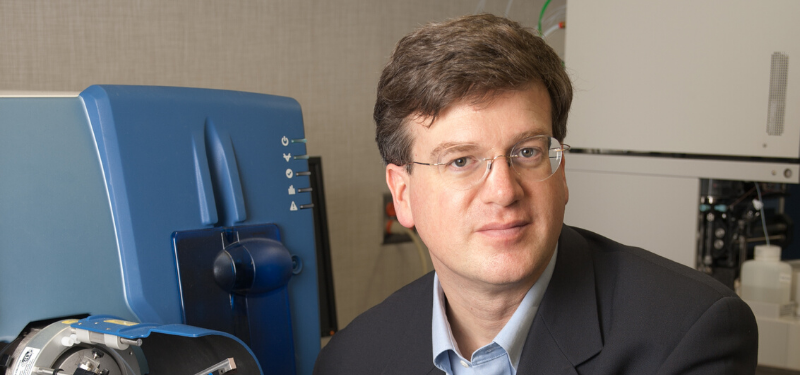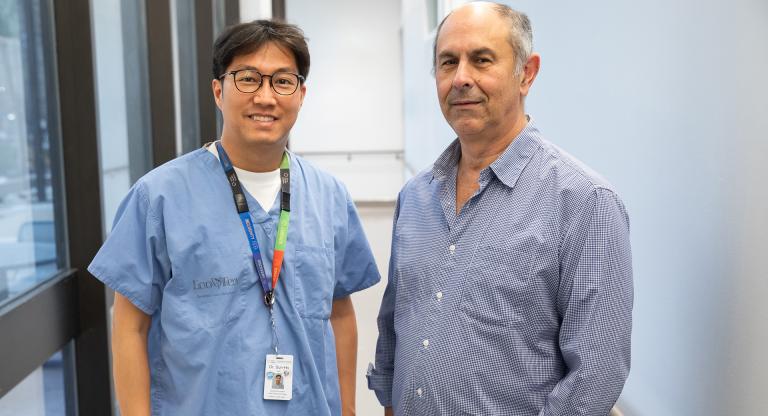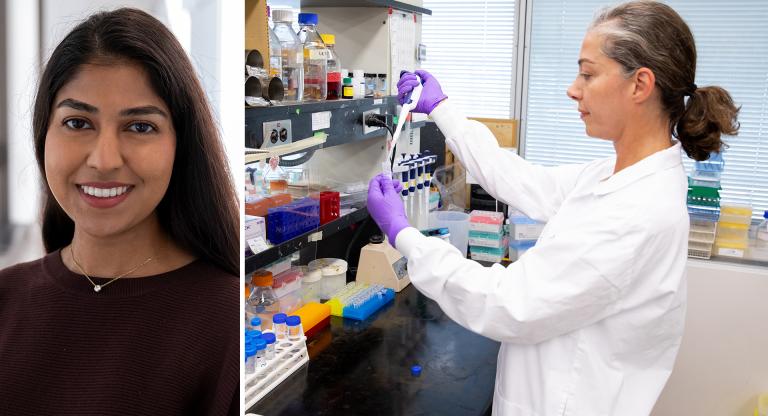Sinai Health researchers dissect SARS-CoV-2 to share reagents worldwide

Scientists at Sinai Health and University of Toronto are working to understand the life cycle of the COVID-19 virus in research that could shed more light on how it spreads.
A team of researchers from Sinai Health’s Lunenfeld-Tanenbaum Research Institute (LTRI) and the University of Toronto has developed a collection of SARS-CoV-2 research tools that highlight how the virus targets human cells and causes disease.
Dr. Fritz Roth, a senior scientist at LTRI and Professor at the University of Toronto’s Donnelly Centre and Department of Molecular Genetics, is a senior author on the work recently posted online in a yet to be peer-reviewed preprint.
His group generated a collection of DNA segments that encode proteins made by the virus in human cells and is already distributing these essential reagents to researchers across the world.
“Until effective vaccines and therapies emerge, we need a fundamental understanding of the virus,” Roth said. “Understanding the structure of the viral proteins, how they fit together, and how they may be bound by drugs and antibodies requires that we be able to produce these proteins in various cell types in a safe manner.”
Many researchers from around the world, including those at LTRI, have mobilized their labs to enable rapid resource and information sharing. Many have been working around the clock to understand the molecular pathways manipulated by the novel coronavirus and to develop and identify treatments.
Dae-Kyum Kim, a post-doctoral fellow who led the project, said this research highlights importance of studying COVID-19 disease without actually handling the infectious virus, a significant barrier for many labs.
“Any lab can now study and test for interactions between SARS-CoV-2 proteins and human proteins without needing special facilities,” Kim said.
Jennifer Knapp, a lab coordinator in Dr. Roth’s group, notes the importance of communication and teamwork during these troubled times.
“It has been encouragingly easy to find help among lab members and among collaborators,” Knapp said. “Everyone is very eager to do what they can to help. This truly is an unprecedented time for everyone, but it’s heartening to see how quickly everyone is responding and offering various resources to the community.”
This work was supported by a Canadian Institutes of Health Research Foundation grant, the Canada Excellence Research Chairs program, the LabEx Integrative Biology of Emerging Infectious Diseases, the Natural Sciences and Engineering Research Council of Canada and by the National Research Foundation of Korea.












